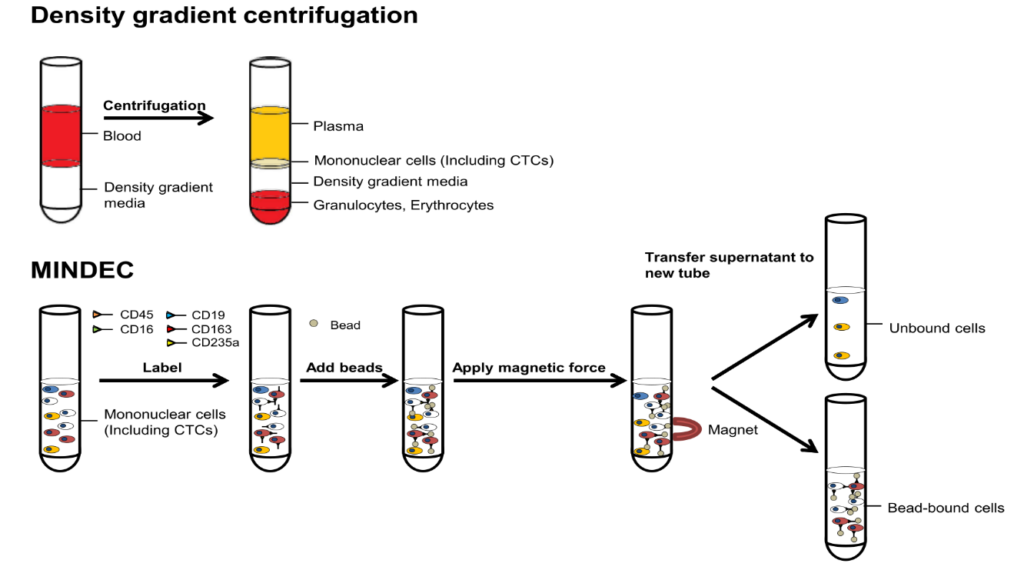Clinical relevance of circulating tumor cells in early breast cancer
The Research Group for Oncology and Medical Physics-Micrometastasis group, Stavanger University Hospital.
Circulating tumor cells in bloodhave been demonstrated to have prognostic value in both metastatic and non-metastatic breast cancer. The standard method for CTC detection (CellSearch) is dependent on the cell-surface protein EpCAM, which is downregulated in some CTCs due to a cellular transformation called epithelial-to-mesenchymal transition. In this study, we will investigate the clinical relevance of EpCAM-independent detection of CTCs in early breast cancer.
The CTCs are enriched from blood samples using the immunomagnetic method MINDEC, recently developed in our lab (Lapin et al. 2016, Scientific Rep; see figure), before detection by quantitative RT-PCR by measuring a panel of mRNAs that are almost absent in normal blood cells, but present in tumor cells. The panel comprise both epithelital and mesenchymal mRNAs.
Blood samples obtained before surgery are examined in regard to potential prognostic value, whereas blood samples taken every six months are evaluated to investigate the possibility of disease monitoring. More than 171 blood samples from 133 PBCB patients have been examined so far, revealing promising results.

Lapin et al. 2016, Scientific Rep.
Publications
MINDEC-An Enhanced Negative Depletion Strategy for Circulating Tumour Cell Enrichment.
Lapin M, Tjensvoll K, Oltedal S, Buhl T, Gilje B, Smaaland R, Nordgård O.
Sci Rep. 2016 Jul 19;6:28929. doi: 10.1038/srep28929.
Back to Personalized Monitoring in Breast Cancer (PerMoBreCan).
















